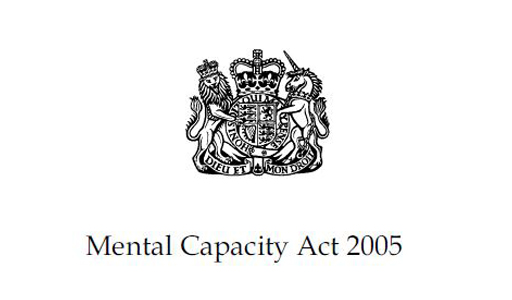2.1 Mental capacity England and Wales
The main purpose of the Mental Capacity Act 2005 is to provide a legal framework for adults to make decisions about their lives. It is designed to protect and empower vulnerable people who lack capacity. It applies to all adults aged 16 and over living in England and Wales, although some parts only apply to adults when they are 18.

The act echoes what you have learned in Weeks 1 and 2:
- Adults have a right to make their own decisions wherever possible.
- If someone is unable to make decisions, others may act for them.
- The act enables all adults to plan ahead for such a time when they may lack capacity and decisions need to be taken for them.
The video below features Baroness Finlay, chair of the Mental Capacity Forum, talking about the five principles of the Mental Capacity Act 2005. They are also summarised in Box 1 below. These principles are very similar to those in the law in Scotland and Northern Ireland.

Transcript: Mental Capacity Act principles
Box _unit4.2.1 Box 1 The five key principles of the Mental Capacity Act 2005
Principle 1: A presumption of capacity
Every adult has the right to make his or her own decisions and must be assumed to have capacity to do so unless it is proved otherwise. This means that you cannot assume that someone cannot make a decision for themselves just because they have a particular medical condition or disability.
Principle 2: Individuals being supported to make their own decisions
A person must be given all practicable help before anyone treats them as not being able to make their own decisions. This means you should make every effort to encourage and support people to make the decision for themselves. If lack of capacity is established, it is still important that you involve the person as far as possible in making decisions.
Principle 3: Unwise decisions
People have the right to make decisions that others might regard as unwise or eccentric. You cannot treat someone as lacking capacity for this reason. Everyone has their own values, beliefs and preferences which may not be the same as those of other people.
Principle 4: Best interests
Anything done for or on behalf of a person who lacks mental capacity must be done in their best interests.
Principle 5: Less restrictive option
Someone making a decision or acting on behalf of a person who lacks capacity must consider whether it is possible to decide or act in a way that would interfere less with the person’s rights and freedoms of action, or whether there is a need to decide or act at all. Any intervention should be weighed up in the particular circumstances of the case.
